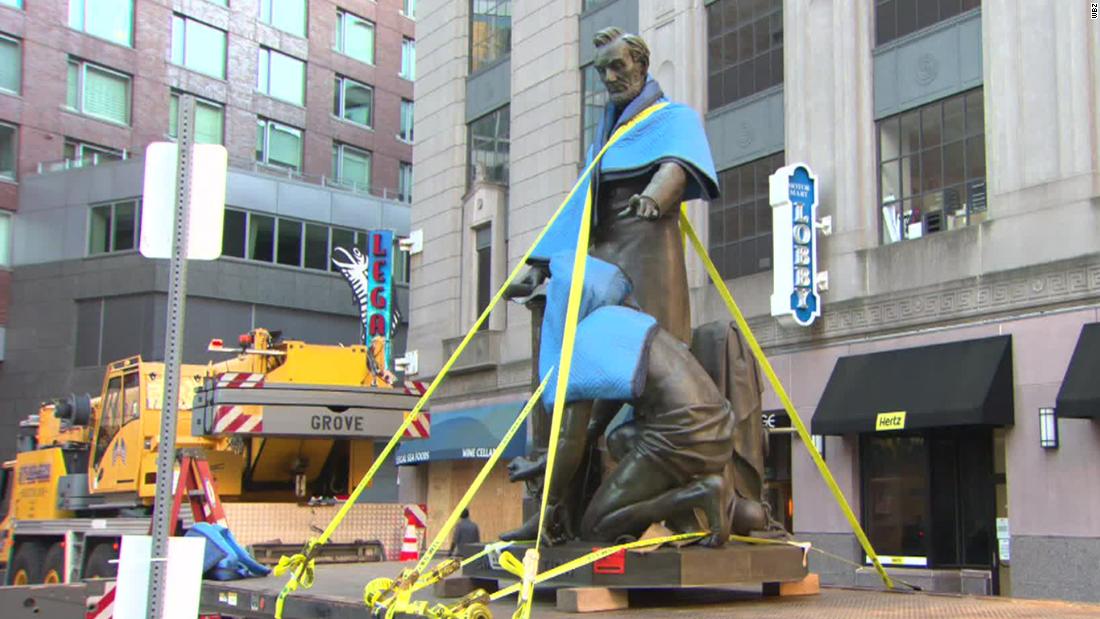
“We are glad we removed it this morning,” a spokeswoman for Mayor Marty Walsh said in a statement to CNN.
“As many have pointed out during the public trial this year, we are in full agreement that the statue should be moved to a new, publicly accessible location where the history and context can be better explained,” said the spokeswoman. “The removal decision recognizes the statue’s role in perpetuating harmful prejudice and in obscuring the role of black Americans in shaping the country’s struggle for freedom.”
Walsh’s office said the statue was being moved to a storage facility until a new location was selected.
The Boston replica was installed in 1879. According to the Arts and Culture website, it was donated by Moses Kimball, a politician and founder of the Boston Museum.
The image was based on a photo of Archer Alexander, a formerly enslaved man who “helped the Union army before seeking freedom for himself and his family,” according to the city’s website. Alexander was recaptured several times under the Fugitive Slave Act.
While the statue has always been criticized, it was a local petition started in June that once again expressed interest in its removal.
“I’m proud, I’m black and I’m young,” said Bullock. “This image has done a lot of disservice to African Americans in Boston and now it ends.”
A series of short-term virtual panel discussions and art installations this winter will look at “examining and reshaping our cultural symbols, public art and histories,” said the mayor’s spokeswoman.
CNN’s Taylor Romine contributed to this report.